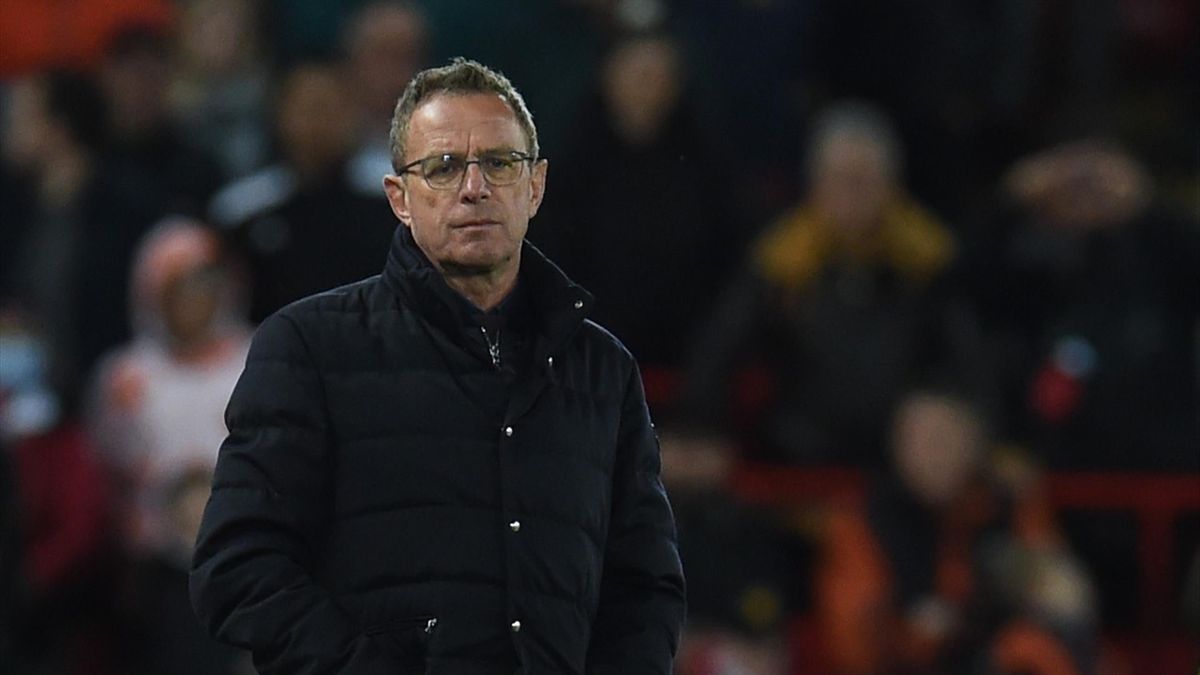Ralf Rangnick, widely regarded as one of the pioneers of the modern pressing style of play, which has become increasingly popular in football in recent years, failed to turn things around at Old Trafford after coming into replace Ole Gunnar Solskjaer, but why?
Rangnick’s tactical approach emphasizes a high-pressing game, which requires players to press high up the pitch and win back possession as quickly as possible. This style of play is characterized by high energy and intensity, and it has been used successfully by several top teams across Europe.
One of Rangnick’s most significant achievements as a manager was his role in transforming RB Leipzig from a lower-league side into a competitive team in the Bundesliga. Rangnick was instrumental in establishing the club’s identity, which was built around a pressing style of play that emphasized high energy and intensity.

Rangnick’s innovative tactics and approach to the game have also been recognized by other top managers, including Liverpool’s Jurgen Klopp, who has credited Rangnick as an inspiration for his own tactical approach.
Furthermore, Rangnick has a reputation for developing young players and giving them a chance to shine. Many of the players he has worked with have gone on to have successful careers, including Liverpool’s Sadio Mane and RB Leipzig’s Timo Werner.
Despite his reputation, Rangnick failed to make a significant impact during his time at Manchester United. In this article, we will explore the reasons why Rangnick failed as the manager of Manchester United.
Tactical Inflexibility
One of the major reasons for Rangnick’s failure at Manchester United was his tactical inflexibility. He insisted on playing a high-pressing style of football, which required his players to maintain a high level of intensity throughout the game. This style of play requires a certain type of player, and not all Manchester United players were suited to this approach.
Furthermore, Rangnick was reluctant to make tactical changes during the game, which meant that his team struggled to adapt to different situations. For example, in the game against Aston Villa, Rangnick’s team was struggling to break down the Villa defence, but he failed to make any changes to his tactics. As a result, Manchester United lost the game 1-0.

Lack of Communication
Another reason for Rangnick’s failure was his lack of communication with the players. He was not able to create a good rapport with the players, which affected their performance on the field. Some players reportedly found it difficult to understand Rangnick’s tactics and instructions, which resulted in confusion on the field.
Rangnick’s communication issues were evident in the game against Brentford, where he substituted Cristiano Ronaldo, Manchester United’s star player, in the second half. This decision was met with criticism from the fans and players, and it highlighted the lack of communication between Rangnick and the players.
Poor Results
Another reason for Rangnick’s failure was the poor results he achieved during his short tenure at Manchester United. He managed to win only one game out of the five he managed, which was not a satisfactory record for a team of Manchester United’s calibre.
Moreover, Rangnick’s team suffered some embarrassing defeats during his tenure, including a 3-1 defeat to Watford, which was a low point of his time at the club. His failure to achieve positive results put immense pressure on him and his team, and it ultimately led to his dismissal.
Lack of Premier League Knowledge
Finally, Rangnick’s lack of knowledge of the English Premier League was another reason for his failure. He had never managed a team in the Premier League before, which meant that he had to learn quickly and adapt to the different style of play in the league.

However, Rangnick struggled to adjust to the pace and physicality of the Premier League, which affected his team’s performance on the field. He was also not familiar with the referees’ decisions, which caused frustration among the players and fans.
Ralf Rangnick’s failure at Manchester United was due to a combination of factors, including tactical inflexibility, lack of communication, poor results, and lack of knowledge of the Premier League. Although Rangnick had an impressive track record as a manager, he was not able to replicate his success at Manchester United. Ultimately, his dismissal was a result of his inability to make a significant impact during his tenure, and the club’s poor performances under his leadership.
What do you believe was Rangnick’s biggest failure at Manchester United? Let us know in the comments below.
